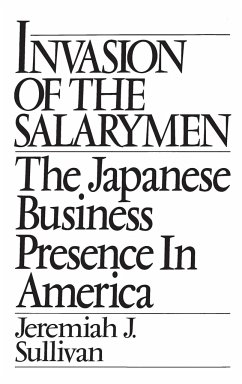Japanese direct investment in the United States increased $100 billion during the late 1980s. By 1992, 400,000 Americans were employed in 2600 companies. This book, the first full-length study of Japan's U.S. business presence, describes the performance of Japanese companies and their approach to managing Americans. With a few exceptions, Japanese investment is unprofitable. Moreover, part of the blame for failure can be attributed to poor management. Sullivan reviews Japanese management practices and shows that, contrary to popular belief, they are rooted in the exercise of power rather than the development of loyalty. These practices work well in Japan but do not transfer easily to the United States. Using the results of extensive interviews and surveys, Sullivan begins by profiling both an effective and an ineffective Japanese manager in the U.S. He describes their reactions to America's individualism, patriotism, and day to day work practices. Broadening the focus, he describes economic and strategic reasons for the rush of Japanese direct investment and summarizes the data on profitability (low), productivity (less than U.S.-owned firms), and the impact on the American economy (generally beneficial or at least harmless). Japanese management philosophy and practices are analyzed in terms of the idea of work, the nature of a company, and the function of profit. Also discussed are lifetime employment, trust-building, decision making, and communication in the organization. These practices are shown in use both in Japan and in Japanese firms in America. Several chapters describe training of Japanese managers for work in the United States and of Americans in Japanese-owned companies.
Hinweis: Dieser Artikel kann nur an eine deutsche Lieferadresse ausgeliefert werden.
Hinweis: Dieser Artikel kann nur an eine deutsche Lieferadresse ausgeliefert werden.








